How to Help Headache Pain
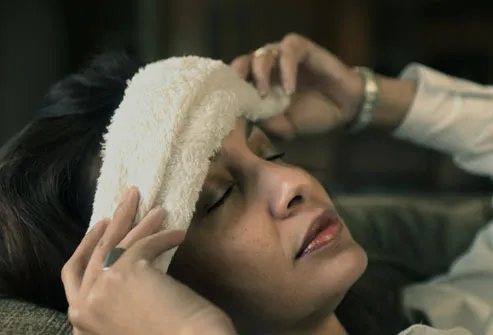
Stress is one of the main causes of headaches. Relieving tense muscles may help calm tension headaches, the most common type of headache. People who have tension headaches may also feel overly sensitive to either light or sound. Rest or sit in a dimly lit room. Close your eyes and try to relax your back, neck, and shoulders.

Caffeine may help relieve headache symptoms by helping pain relief drugs work better and faster. Caffeine added to pain relievers can make them more effective in treating headaches. That’s why caffeine is often an ingredient in medications.
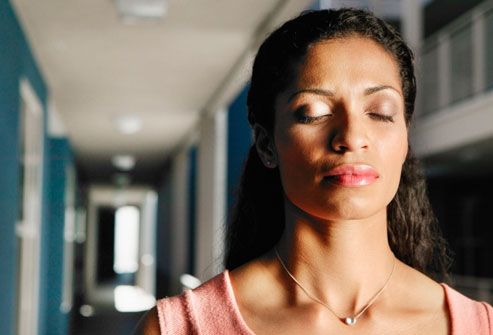
Deep breathing exercises and mental imagery may reduce stress and ease headache pain. This quick technique combines both: Take several deep breaths. Exhale slowly, relaxing areas that feel tight and cramped, while picturing a peaceful scene. Drop your chin toward your chest, then gently and slowly rotate your head in a half circle from one side to the other. Take another deep breath and exhale slowly.
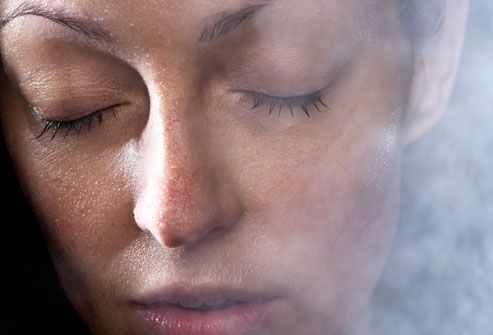
Cold and heat may relieve pain and muscle tension that can accompany headaches. A hot shower or moist heat applied to the back of the neck may ease symptoms of infrequent tension headaches. Try a hot water bottle, a warm towel, or a warm compress. If you prefer cold, try wrapping an ice pack in a towel. Then put it where you hurt -- on your forehead, temples, or neck.
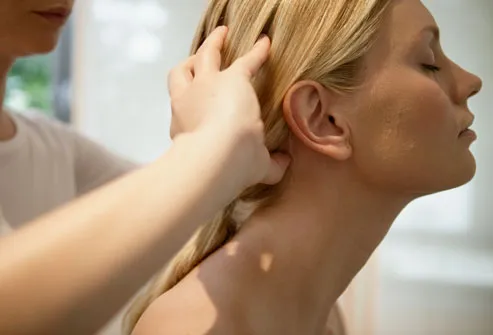
Massage can undo clenched muscles and help you relax, so it can be especially good for stress or tension headaches. Have someone else gently massage your head, neck, and shoulder muscles. Or do it yourself with a targeted mini-massage. Gently rub the painful spot on your head with your fingertips for several seconds. Rest and repeat as needed.
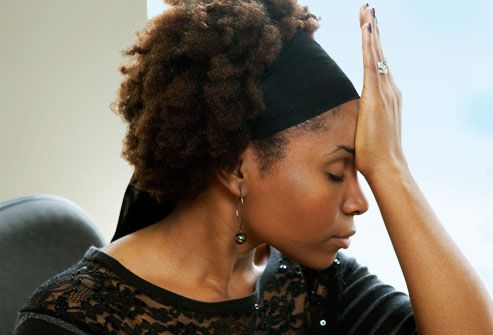
Neck exercises may ease tension headache pain caused by holding your head in one position for too long. Here’s an exercise that may help. Place your palm on your forehead. Using your neck muscles, press forehead lightly forward against palm. Keep your head upright, your hand and arm still for resistance.
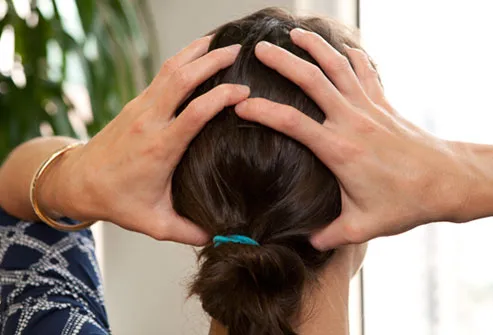
Acupressure may help ease headache pain. Place your thumbs near the base of your skull. Find the depressions on both sides of where your head meets your neck. They are just outside of the thick muscle that runs down the middle (about 2 inches from the center). Press in and slightly upward with your thumbs until you feel slight pain. While pressing move your thumbs in small circles for 1-2 minutes.
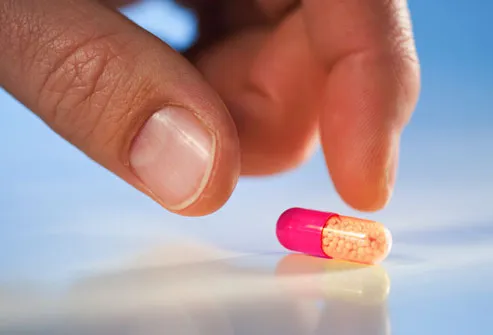
Over-the-counter drugs acetaminophen, aspirin, ibuprofen, and naproxen sodium can ease headache pain. Drugs that combine acetaminophen, aspirin, and caffeine may work better for some people than when each is taken alone. But using any headache medicine for more than three days a week may cause medication overuse headaches. See your doctor if you need medication this often.
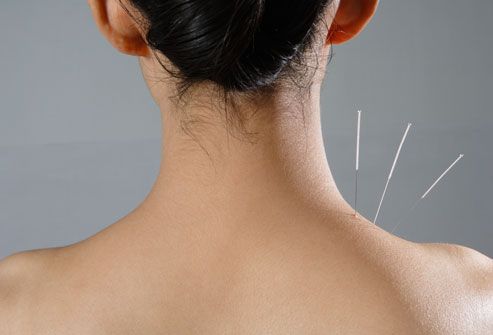
In this form of Chinese medicine, a practitioner places fine needles at certain points in your body. Stimulating these points may release your body's natural painkillers -- endorphins -- to ease neck, shoulder, and head pain. Some studies have found that when done as preventive therapy over several months, acupuncture may reduce the number of tension headaches people get. Acupuncture can be done on its own or with other treatments.
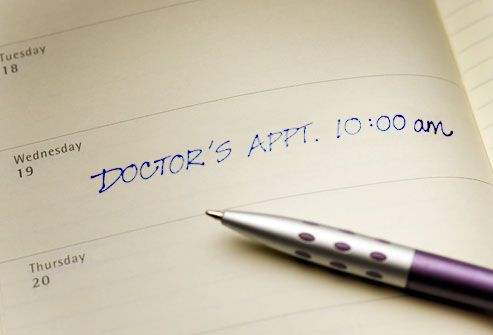
See your doctor if your headaches are frequent or last more than a few days. Get immediate medical help if your headache is sudden and severe, occurs after a head injury, or is the worst you have ever had. It’s also important to get urgent care if your headache is accompanied by fever, stiff neck, seizures, numbness, double vision, dizziness, severe nausea, shortness of breath, or confusion.